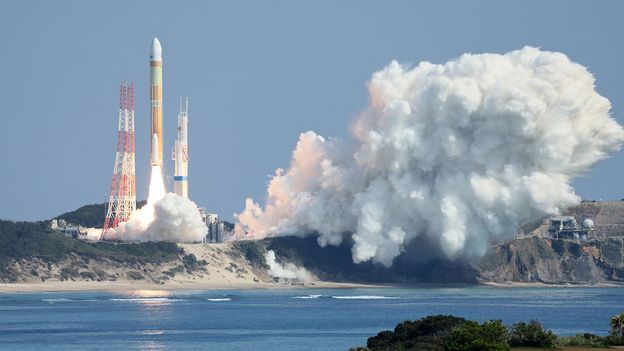What are the odds of a successful space launch?

They make the biggest headlines, of course, when things go wrong.
Starship One was commercial space agency SpaceX’s biggest launch to date. With a test model of its futuristic Starship spacecraft mounted on top of the enormous Super Heavy rocket, the debut launch of the Starship super-heavy lift vehicle was the subject of global anticipation. When the rocket lifted off in a massive cloud of smoke and dust from the launch pad at Boca Chica in Texas on 20 April 2023, it ushered in a new era of space exploration.
But not for long.
The debut launch of Starship would have seen the rocket do a solitary lap of Earth before entering a controlled re-entry of the Earth’s atmosphere and splashing down in the warm waters of the Gulf of Mexico. But three of the Super Heavy booster’s 33 engines did not fire on launch, and more failed as it lifted further into the air. Nearly four minutes after initial lift-off, the rocket started tumbling wildly and was deliberately exploded over the Gulf.
The first-flight failure of Starship One was a very high-profile casualty in the 21st Century’s new race for space. SpaceX said its failure provided many key lessons for the next launch, which will only take place after weeks of clean-up at the badly damaged Boca Chica site. SpaceX don’t consider it a failure, but a springboard to solving issues before the next launch.
But failures – loud, explosive failures – often make for better footage and news stories than routine successes, and often get wider coverage. More than 75 years since humanity started sending rockets into space in earnest, how likely is a successful rocket launch?
David Wade is one of those who weighs up just what the risk may be. Wade is an underwriter at Atrium Space Insurance, an insurance agency which supports commercial space launches. “Last year (2022), there were 186 launches,” he says. These carried 2,509 satellites into orbit, the majority of those being Starlink, SpaceX’s satellite internet constellation. “Satellites are launched up to 60 at a time on the [SpaceX] Falcon 9,” says Wade. But out of 186 launches, there were only eight failures.”
You might also like:
That works out to around a 4% failure rate – one in every 25 launches. But Wade says 2022 was an anomaly. Last year broke records in terms of the number of rocket launches – to give some idea of just how quickly space traffic is growing, there were 40 more in 2022 than in 2021 and double the number five years earlier in 2017. But with that extra traffic has also come increased risk.
“I would say, last year, we saw more failures than in some years, because we’re starting to go through a phase where we’re seeing quite a few new launch vehicles being introduced,” says Wade. And early flights of launch vehicles are always more problematic.”
The likes of Starship One and Nasa’s Artemis programme – which launched successfully for the first time in November 2022 – are the most charismatic of these new launch vehicles. But they are only the tip of the iceberg. With new launch vehicles comes more uncertainties, especially with those first few flights.

